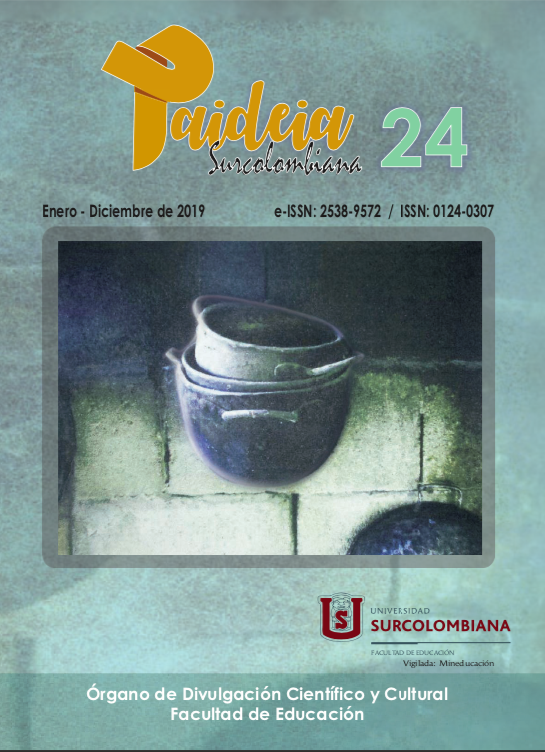A look at the concepts of leisure, free time and recreation of students, teachers and administrative staff of the Faculty of Exact and Natural Sciences of the Universidad Surcolombiana
##plugins.themes.bootstrap3.article.main##
The results of an exploratory quantitative investigation are presented where a structured survey with multiple-choice questions was used as an information collection tool. The population under study consisted of 45 students of the applied Maths program and 45 students of the Physics program, 60 teachers of applied Maths and 33 Physics, as well as 7 administrative staff belonging to the Faculty of Exact and Natural Sciences of the Universidad Surcolombiana. It was also concluded that a high percentage of the population is not sufficiently clear about the concepts of leisure, recreation and free time, besides, they are not fully aware of the benefits that these activities generate in the life of the human being.
Downloads
##plugins.themes.bootstrap3.article.details##
Cuenca, M. (2009). Ocio humanista. Documentos de Estudios de Ocio, 16. Bilbao: Universidad de Deusto.
Cuenca, M (2005). Emergencia de un discurso-realidad en la sociedad del ocio. Cuadernos de Pedagogía, N. 349. 60 -63.
Cabeza, M. (2000): “Ocio humanista”. Documentos de Estudios de Ocio, núm. 16. Bilbao: Universidad de Deusto.
Cabeza, M., (2002):"Modelo de Intervención UD en Educación del Ocio", en De la Cruz Ayuso, C. (ed.), “Educación del Ocio. Propuestas internacionales”. Documentos de Estudios de Ocio, núm. 23, Instituto de Estudios de Ocio, Universidad de Deusto, Bilbao.
Cabeza, M., (2004): “Pedagogía del ocio: modelos y propuestas”, Universidad de Deusto, Bilbao.
Cabeza, M (2007): Retos actuales de los Estudios de Ocio”, en el libro coordinado por Monteagudo Sánchez, Mª J. (2007). “El Ocio en la investigación actual”. Ed. Universidad de Deusto.
Cortez, L. (2012) Tiempo libre, ocio y recreación, pensamiento crítico en México.Proquest.31(2)recuperado http://search.proquest.com.ezproxy.uniminuto.edu:8000/docview/1429690259/fulltextPDF/9F5E4B8B978C4133PQ/1?accountid=48797
Elizalde, R. Gomes, C. (2010) Ocio y recreación en América Latina: conceptos, abordajes y posibilidades de re significación. Polis. 9, 19-40. Recuperado de http://www.scielo.cl/scielo.php?pid=S071865682010000200002&script=sci_arttext","http://www.scielo.cl/scielo.php?pid=S0718-65682010000200002&script=sci_arttext.
Gomes. C. (2014) El ocio y la recreación en las sociedades latinoamericanas actuales. Polis, Revista de la Universidad Bolivariana. 13, 1-22. Recuperado de http://www.redalyc.org/articulo.oa?id=30531107020","http://www.redalyc.org/articulo.oa?id=30531107020.
Roa A. (2018) El binomio ocio familia desde el enfoque del Ocio Humanista: El caso de las familias de la caja de compensación familiar del Huila. (Neiva-Colombia). Universidad de Deusto.














